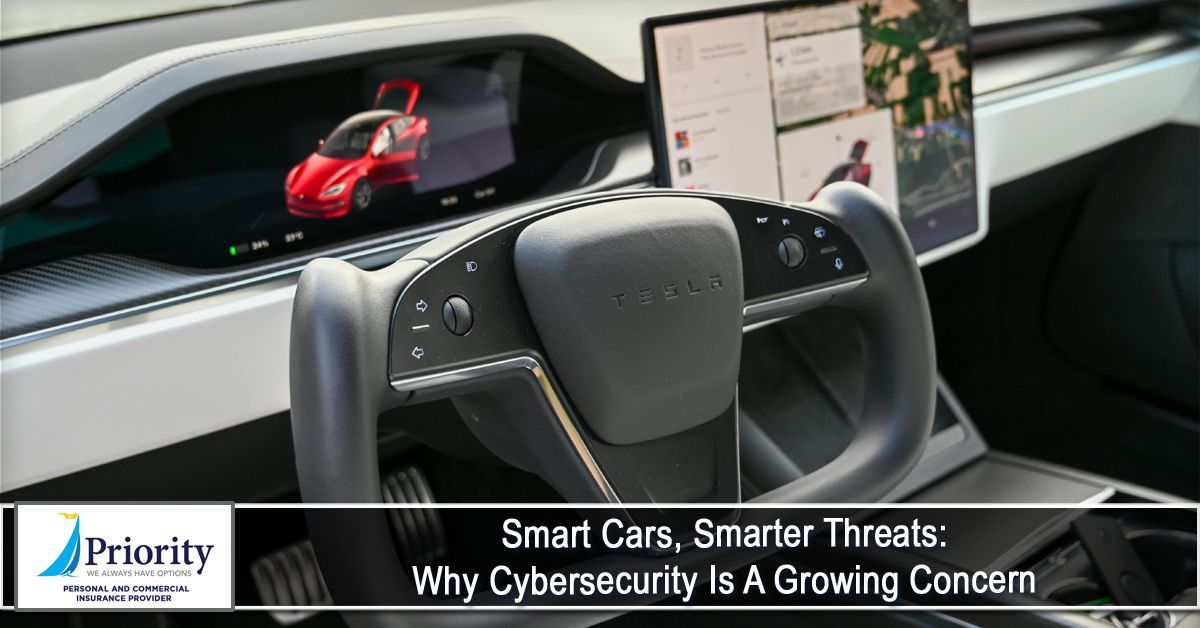
In the age of digital transformation, smart cars are becoming the norm on our roads. With advanced technology integrated into vehicles—such as autonomous driving capabilities, infotainment systems, GPS, and wireless connectivity—our cars are smarter than ever before. These innovations offer incredible convenience and safety features, but they also introduce a new set of risks: cybersecurity threats.
As vehicles become more connected to the internet and each other, the potential for cyberattacks increases. Hackers can exploit vulnerabilities in a car’s software to gain control of critical systems, compromise personal data, or even remotely disable a vehicle. In this blog, we’ll explore the growing cybersecurity concerns surrounding smart cars, the potential risks, and why it’s essential to consider cybersecurity when investing in these advanced vehicles.
The Rise of Smart Cars and Connectivity
Modern smart cars are no longer just about getting from point A to point B; they are equipped with cutting-edge technologies that make them more connected, autonomous, and intelligent. Many smart cars feature advanced driver assistance systems (ADAS) like adaptive cruise control, lane-keeping assistance, and automatic emergency braking. These systems rely heavily on sensors, cameras, and software to operate, making them more susceptible to cyber threats.
In addition to safety features, many vehicles today are equipped with wireless connections that allow drivers to interact with their cars through mobile apps. These connections enable functions such as remote start, climate control, and navigation. The ability to connect cars to the internet and other devices creates a vast network of data, but it also opens the door to cybercriminals who may attempt to breach these systems.
The Growing Threat of Cyberattacks on Vehicles
While smart cars provide enhanced features, they also present new challenges when it comes to cybersecurity. As vehicles become more reliant on software and connectivity, they become targets for cyberattacks that can compromise the safety of the driver, passengers, and the vehicle itself. Here are some of the most concerning cybersecurity threats that smart cars face:
1. Remote Hacking
One of the most alarming threats is the possibility of remote hacking. If a hacker gains access to a car’s onboard computer systems, they could take control of various functions, such as steering, braking, or acceleration. Remote hacking attacks could cause accidents, lead to theft, or even result in a car being used as a weapon in an attack.
- Example: In 2015, researchers were able to remotely hack into a Jeep Cherokee’s infotainment system and take control of its steering and braking systems. This demonstration highlighted the vulnerabilities in modern vehicles’ wireless connections.
2. Data Theft and Privacy Violations
Smart cars collect vast amounts of data, including personal information such as location history, driving habits, and even biometric data if your car is equipped with facial recognition or other tracking technologies. This data is often stored in the cloud or shared with third-party services, making it vulnerable to cybercriminals who may want to steal it for identity theft, fraud, or other malicious purposes.
- Example: If a hacker gains access to your car’s systems, they could steal your GPS data and track your movements, posing a privacy risk. Additionally, your vehicle’s Wi-Fi and Bluetooth connections could be used to access your personal devices, such as smartphones and tablets, exposing them to further risks.
3. Vulnerabilities in Autonomous Vehicles
As the development of autonomous vehicles accelerates, new cybersecurity concerns arise. Self-driving cars rely on a complex system of sensors, cameras, radar, and LIDAR (light detection and ranging) technology to navigate roads and make decisions. If any of these systems are compromised, it could lead to catastrophic failures.
- Example: A hacker could potentially interfere with the data collected by a self-driving car’s sensors, causing the vehicle to misinterpret its environment and make dangerous decisions, such as veering into traffic or failing to stop at an intersection.
4. Vehicle-to-Vehicle (V2V) Communication
Many modern smart cars are equipped with vehicle-to-vehicle (V2V) communication, which allows cars to exchange information such as speed, location, and direction to improve traffic safety and flow. While this technology can reduce accidents, it also makes vehicles more vulnerable to cyberattacks.
Example: A hacker could disrupt the communication between two vehicles, causing them to make incorrect safety decisions, like failing to avoid a collision.
Why Cybersecurity Is Crucial for Smart Cars
As the technology that powers smart cars continues to evolve, it’s essential for automakers to invest in robust cybersecurity measures to protect their vehicles from hacking and other cyber threats. Automakers must prioritize securing their software systems, encrypting communication channels, and implementing regular software updates to fix vulnerabilities. However, the responsibility doesn’t lie solely with the manufacturers. Car owners also play a role in ensuring the cybersecurity of their vehicles by:
- Regularly updating software: Just like smartphones and computers, smart cars require regular software updates to patch security vulnerabilities.
- Using secure connections:
Ensure that your car’s wireless connections, such as Bluetooth and Wi-Fi, are secure and not left open for unauthorized access.
- Monitoring for unusual activity: Stay vigilant for any signs of unusual behavior in your vehicle, such as unexpected system malfunctions or unfamiliar devices trying to connect to your car.
By working together, automakers, cybersecurity experts, and car owners can ensure that smart cars remain safe from cyber threats.
Why Commercial Auto Insurance is Essential
While cybersecurity is a growing concern for smart cars, traditional risks remain relevant as well. Auto insurance is vital for individuals and businesses that rely on vehicles for daily transportation, whether it's commuting, running errands, or long-distance travel. Auto insurance helps protect drivers from financial loss in the event of an accident, vehicle theft, or property damage.
In the context of smart vehicles, auto insurance also provides coverage for cyber-related incidents, such as data breaches or damages caused by hacking. With the rise of connected vehicles and autonomous systems, having specialized coverage that accounts for both traditional accidents and modern cybersecurity threats is becoming increasingly important.
Without proper auto insurance, drivers could face significant financial risks in the event of an accident or a cyberattack. This coverage provides a safety net, ensuring that individuals can recover from these incidents without facing overwhelming costs.
Conclusion
Smart cars represent the future of transportation, but with that future comes new challenges, particularly in terms of cybersecurity. As cars become more connected and autonomous, the risks associated with hacking and data breaches grow. Automakers and vehicle owners must prioritize cybersecurity measures to protect against these threats and ensure the safety and privacy of those on the road.
At the same time, auto insurance remains essential for all drivers. Whether dealing with traditional accidents or the evolving risks of cyberattacks, having the right insurance in place is crucial for financial protection. As the automotive industry continues to embrace new technologies, both businesses and consumers must stay proactive in safeguarding their vehicles and personal information.
At Priority Insurance LLC, we put our clients first by offering them policies that they can afford. Having insurance is a necessity nowadays, and we're here to help you out. Learn more about our products and services by calling our agency at (864) 297-9744. You can also request a free quote by CLICKING HERE.
Disclaimer: The information presented in this blog is intended for informational purposes only and should not be considered as professional advice. It is crucial to consult with a qualified insurance agent or professional for personalized advice tailored to your specific circumstances. They can provide expert guidance and help you make informed decisions regarding your insurance needs.












